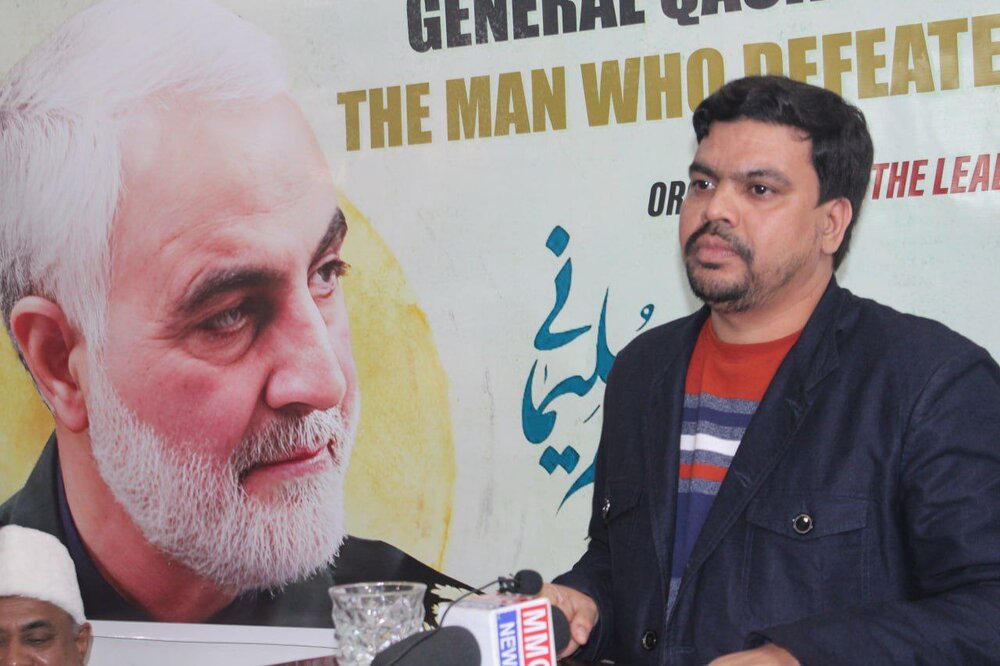Indians praise General Soleimani's heroism on his martyrdom anniversary

Thousands of miles away from Iran and other countries in the Middle East, dozens of people from civil society and media organizations gathered in the Indian capital New Delhi to commemorate the martyrdom anniversary of General Qassem Soleimani, a revered military figure who commanded the Islamic Revolutionary Guard Corps (IRGC).
The event was organized by the Leaders Media, an independent media outlet in New Delhi.
The speakers at the occasion asserted that General Soleimani and Iraqi Hashd al-Shabi Deputy Commander Abu Mahdi al-Muhandis, who were crucial commanders in the battle against Western-backed ISIS, also known as Daesh in its Arabic acronym.
"It was not just the Indian nurses. Had Qassem Soleimani not held back ISIS, it would have also made an entry into India. It was for people like Soleimani who ensured neutralization of the terrorist organization so that it could not expand its fangs beyond the Middle East region."Qamar Agha, a well-known strategic and defense expert highlighted General Soleimani's life as a military figure who did not go to any formal military school but was self-trained in the art of warfare and had emerged as a military leader after the Islamic Revolution in Iran.
"Initially America had given a free hand to ISIS in the entire Middle East region but after the terrorist organization went out of control and became an independent organization, Americans became hostile to it but still wanted it to exist since the terrorist organization was fighting governments in Syria, Lebanon and Iraq who were challenging Western hegemony in the region," Qamar Agha stated.
"During this period America also tolerated General Qassem Soleimani as it believed that Soleimani would ensure that ISIS did not become stronger. However, Soleimani became intolerable to the U.S. because he was negotiating with the Saudi Arabia's monarchical regime which could minimize the American hegemony in the region. And hence he was killed by the American drones," Agha added.
Others in the gathering also spoke at length about General Soleimani's contribution to strengthening Iran's long-term friendly relationship with India and how he played an instrumental role in the safe return of Indian nurses, who ISIS had kidnapped in Tikrit in Anbar province in Iraq in 2014.
Sajjad Hussain, a political activist from the Ladakh region of India, recalled how the then Minister of External Affairs Sushma Swaraj praised the Iranian general's role in safely evacuating the Indian nurses.
"Qassem Soleimani played a major role in ensuring that the terrorists belonging to ISIS did not cause any harm to nurses and also safely ensuring their return to India. Sushma Swaraj praised General Soleimani's efforts in negotiating their return," Sajjad said.
"It was not just the Indian nurses. Had Qassem Soleimani not held back ISIS, it would have also made an entry into India. It was for people like Soleimani who ensured neutralization of the terrorist organization so that it could not expand its fangs beyond the Middle East region," Hussain remarked.
Other speakers in the meeting also recalled how several defense experts and people from the Indian military establishment credited Soleimani's role in prioritizing Iran's relations with India over China. And how during his statesmanship, Iran never signed any significant deal with China.
